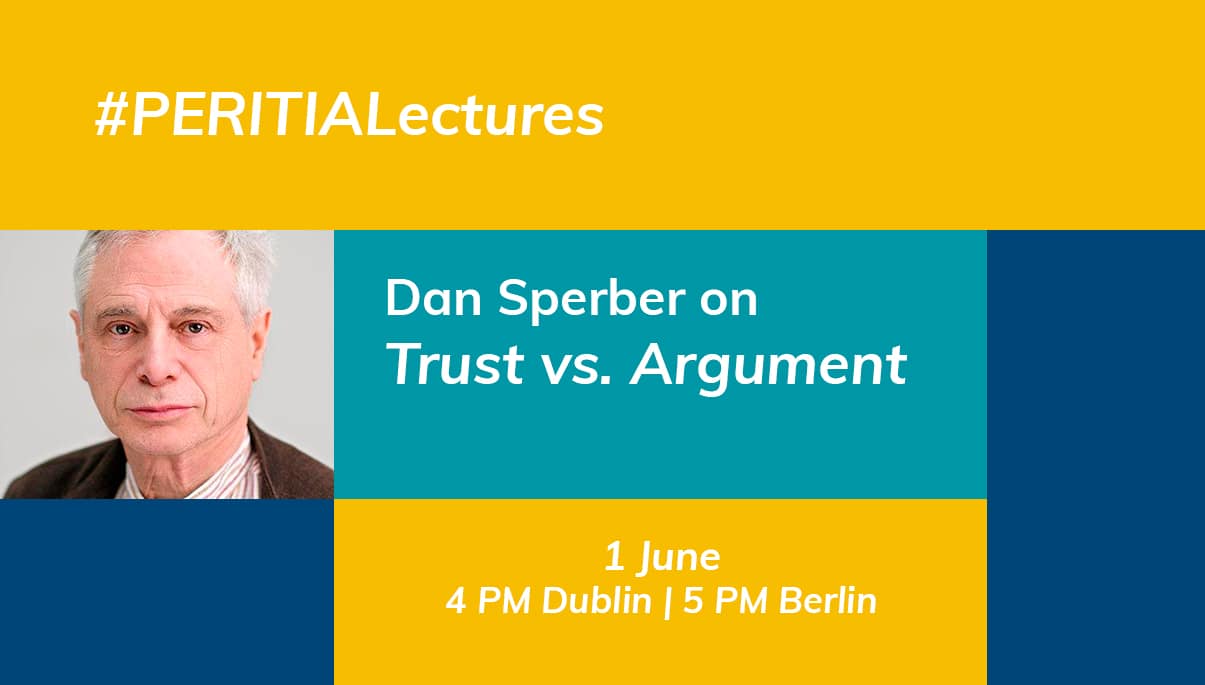
Watch Dan Sperber on Trust versus Argument
Professor Dan Sperber joined the PERITIA Lectures last June to discuss the relation of trust versus argument and epistemic vigilance in the fifth talk of the online series “[Un]Truths: Trust in an Age of Disinformation”. Sperber is a philosopher and social and cognitive scientist, researcher at the Institut Jean Nicod in Paris and professor in the departments of Cognitive Science and of Philosophy of the Central European University in Budapest and Vienna.
In his lecture, Sperber introduced the topic of trust and viligance. According to him, some philosophers have argued that humans trust one another automatically; others have argued that they only trust people whom they have reasons to believe are trustworthy. He argues that humans are simultaneously trustful and vigilant. To be vigilant is not to distrust, it is to spontaneously adjust one’s trust in the sources and the contents of communicated information.
According to him, argumentation is a means to overcome the limits of trust. An audience who does not trust the good faith or the competence of a communicator may still be convinced by arguments the soundness of which can be assessed independently of their source. When, however, the arguments in support of some conclusion that would not be accepted on trust cannot be properly assessed by the audience—as happens commonly when experts speak—arguments can still be used not to convince but to impress, seduce, or intimidate the audience.
About Dan Sperber
Dan Sperber is a member of the PERITIA advisory board and the author of Rethinking Symbolism (1975), On Anthropological Knowledge (1985), and Explaining Culture (1996); the co-author (with Deirdre Wilson) of Relevance: Communication and Cognition (1986/1995) and Relevance and Meaning (2012); and the co-author (with Hugo Mercier) of The Enigma of Reason (2017).
In his work, he has developed a naturalistic approach to culture under the name of epidemiology of representations or, more recently, cultural attraction theory. With Deirdre Wilson, he has developed a cognitive approach to communication known as relevance theory. With Hugo Mercier, he has developed an argumentative theory of reasoning and expanded it into an interactionist approach to reason. Cultural attraction theory, relevance theory, and the interactionist approach to reason have each been influential and also controversial.
The PERITIA Lectures explore the concept of trust and truth in light of current events. Prominent philosophers and academics from Europe and the United States come together to present their latest research on trust in science, conspiracy theories, trustworthy science, truth and democracy, and trust and cognitive science. The first part of the series took place from April to June. A second part will start in September. More information will be available soon on our social media and this website.


